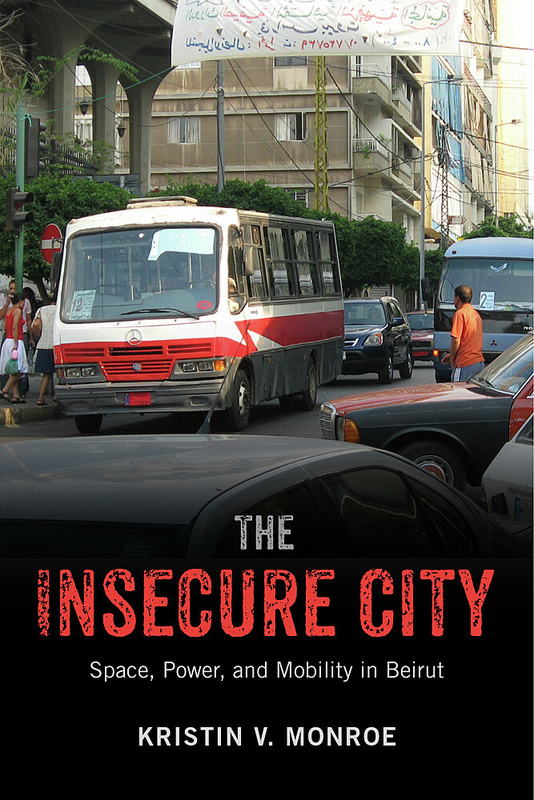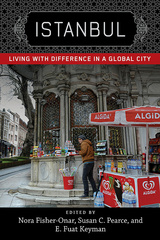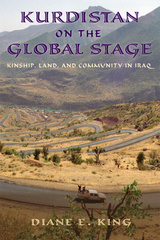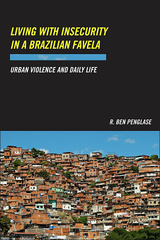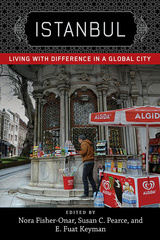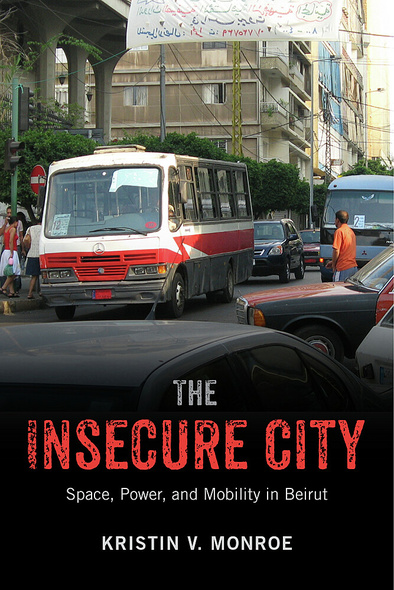
204 pages, 6 x 9
7 photographs, 2 maps
Paperback
Release Date:15 Mar 2016
ISBN:9780813574622
Hardcover
Release Date:15 Mar 2016
ISBN:9780813574639
The Insecure City
Space, Power, and Mobility in Beirut
Rutgers University Press
Fifteen years after the end of a protracted civil and regional war, Beirut broke out in violence once again, forcing residents to contend with many forms of insecurity, amid an often violent political and economic landscape. Providing a picture of what ordinary life is like for urban dwellers surviving sectarian violence, The Insecure City captures the day-to-day experiences of citizens of Beirut moving through a war-torn landscape.
While living in Beirut, Kristin Monroe conducted interviews with a diverse group of residents of the city. She found that when people spoke about getting around in Beirut, they were also expressing larger concerns about social, political, and economic life. It was not only violence that threatened Beirut’s ordinary residents, but also class dynamics that made life even more precarious. For instance, the installation of checkpoints and the rerouting of traffic—set up for the security of the elite—forced the less fortunate to alter their lives in ways that made them more at risk. Similarly, the ability to pass through security blockades often had to do with an individual’s visible markers of class, such as clothing, hairstyle, and type of car. Monroe examines how understandings and practices of spatial mobility in the city reflect social differences, and how such experiences led residents to be bitterly critical of their government.
In The Insecure City, Monroe takes urban anthropology in a new and meaningful direction, discussing traffic in the Middle East to show that when people move through Beirut they are experiencing the intersection of citizen and state, of the more and less privileged, and, in general, the city’s politically polarized geography.
Download open access ebook here.
Download open access ebook here.
Provides the researcher on Lebanon a solid grasp on the way mobility and class intersect. One of the book's strengths is that it is written in an approachable style, making it highly suitable to assign in an undergraduate classroom when dealing with topics of mobility and security. That the book comes at a time of increasing insecurity and securitization in the region makes it even more timely for an audience beyond Lebanon.
This book offers a telling glimpse into a moment of Lebanese history whose inherent contradictions make one think about the ways in which not only ‘mobilities’ but also contemporary surveillance technologies and practices are informed by the longue durée of local sectarian formations.
A welcome contribution to ethnographies of Beirut as well as to critical studies of security and precarity in 21st-century cities.
Kristin Monroe has written a remarkable book about the violence of everyday life in Beirut and has developed a fresh approach to understanding the difficulties of living in this 'wounded' city.'
Monroe smoothly leads the reader on a journey into Beirut’s streets, with its chaotic traffic, checkpoints, and busy street life. She makes a significant contribution to emerging social science studies about Beirut.'
Monroe smoothly leads the reader on a journey into Beirut’s streets, with its chaotic traffic, checkpoints, and busy street life. She makes a significant contribution to emerging social science studies about Beirut.'
Kristin Monroe has written a remarkable book about the violence of everyday life in Beirut and has developed a fresh approach to understanding the difficulties of living in this 'wounded' city.'
A welcome contribution to ethnographies of Beirut as well as to critical studies of security and precarity in 21st-century cities.
This book offers a telling glimpse into a moment of Lebanese history whose inherent contradictions make one think about the ways in which not only ‘mobilities’ but also contemporary surveillance technologies and practices are informed by the longue durée of local sectarian formations.
Provides the researcher on Lebanon a solid grasp on the way mobility and class intersect. One of the book's strengths is that it is written in an approachable style, making it highly suitable to assign in an undergraduate classroom when dealing with topics of mobility and security. That the book comes at a time of increasing insecurity and securitization in the region makes it even more timely for an audience beyond Lebanon.
KRISTIN V. MONROE is an assistant professor of anthropology at the University of Kentucky in Lexington.
List of Figures
Acknowledgments
Note on Language
Introduction
1. The Privatized City
2. The Space of War
3. Politics and Public Space
4. Securing Beirut
5. The Chaos of Driving
6. “There Is No State”
Conclusion
Notes
References
Index

